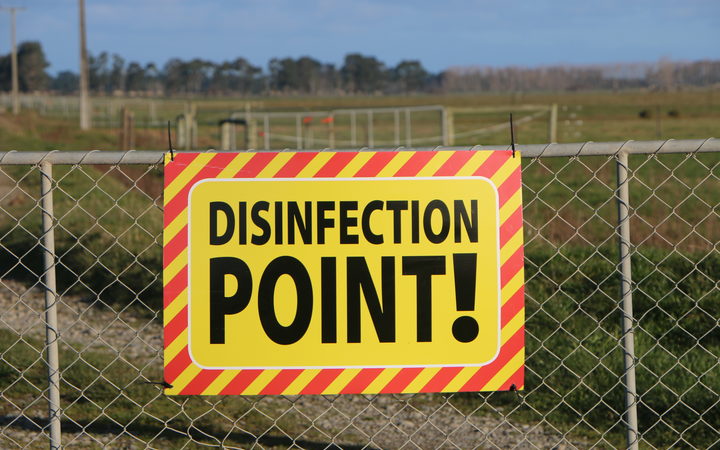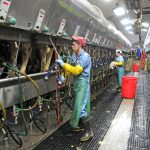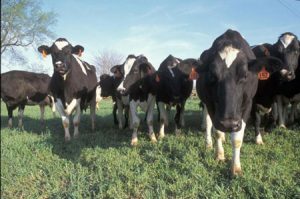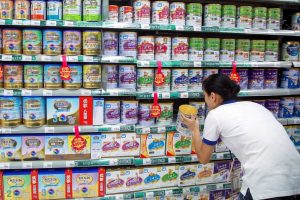
It also learned from communications failures in its handling of the cattle disease. But eradication effort has been hampered by failures in the national tracing system – and that controversy has slipped under media radar.
It was telling that news no new cases of Covid-19 only just sneaked into Newstalk ZB’s 1pm bulletin last Tuesday before the sports news.
Earlier in the same bulletin there was encouraging news about another disease the government is seeking to eradicate here.
Two years after the government decided it would take “one shot” at getting rid of Mycoplasma Bovis, agriculture minister Damien O’Connor and the Prime Minister told reporters there were now only 17 properties with infections under quarantine control. Two-hundred and 34 had been cleared.
But 150,000 cattle have been culled in since 2018 after nearly $900 million set aside to defeat the disease over 10 years.
As with the approach to Covid-19, the eradication decision had vocal opponents – including media personalities.
TV3’s Duncan Garner told his listeners and viewers “murdering cows” would not work.
Garner also accused MPI of neglect and having no plan for M Bovis – or even more serious diseases like foot and mouth – in the Dominion Post.
MPI’s Chief Operations Officer Roger Smith wrote a in strong rebuttal to Stuff: “Duncan Garner’s opinion piece . . . is factually incorrect in places, and unintelligible in others.
“Once Duncan Garner has taken the time to do his homework, perhaps he would like to apologise to our staff who work day and night to protect our country from unwanted pests and diseases,” he added.
Garner doesn’t seem to have commented since them on the apparent progress of the eradication campaign so far.
Whether M Bovis is successfully eradicated or not, tracing cattle movements is crucial – another echo of the novel coronavirus in 2020.
Dairy farmers were given that message two years ago – and it matters right now because tomorrow is Moving Day, when farmers start moving stock again to new grazing pastures and new sharemilking contracts begin.
In the latest Farmers’ Weekly, NAIT boss Kevin Forward says farmers must draw lessons from Covid-19.
“Good tracing will be our crucial defence when (not if) the next biosecurity incursion arrives on New Zealand farms,” he wrote, pointing out that Traceability safeguards $40b of agricultural exports.
When M Bovis struck in 2017 it became clear many farmers weren’t complying with the NAIT (National Animal Identification and Tracing) scheme set up as an essential biosecurity backstop in 2012.
Some farmers were even selling animals for cash with no record of the sale. That made it much harder to trace and slow the spread of the disease
In May last year, Farmers Weekly reported “more than 62,000 livestock farmers are yet to re-register with NAIT as Moving Day approaches.”
Primary industry “gave the finger” to attempts to overhaul the original NAIT scheme, Damien O’Connor told Rural News at the time, ahead of law changes last year to introduce tougher penalties.
“We are still short of where we need to be,” Andrew Morrison, chairman of Beef + Lamb New Zealand said this week.
With international tourism out of the international picture for now, and threat to that income is doubly critical for the country.
On Mediawatch in June 2018, broadcaster Serah Perriam said traceability was”the next big story.”
“The media have a lot of homework to do on this,” she said back then.
But the intense media focus has meant hardly any mainstream media coverage of ongoing lack of compliance with NAIT obligations.
Back in January, TVNZ’s Benedict Collins reported that a beefed-up NAIT compliance regime had resulted in just one prosecution – and a fine of $150.
Why has this gone under the media’s radar?
Perriam, who now has her own daily agribusiness show in conjunction with Farmers Weekly – Sarah’s Country – told Mediawatch rural media have not ignored the issue.
“It’s often the same in news if there’s a little fresh crucial new information coming through the story will fold into the background,” she said.
“It’s important we hold our government and industry bodies to account because of the large amount of money that’s at stake some of this is levy-funded money put towards the eradication as well.
“Farmers not being up to speed with compliance means it’s been good to show to the farm and community the need for traceability interrupt their game.
“The learnings we had from M bovis have been taken forward into the Covid-19 response – in particular the communication failures.
“But we haven’t seen the same updates and communication with Covid. I don’t think the M bovis eradication program has learned from Covid in turn.”
Federated Farmers national vice-president Andrew Hoggard admitted to newsroom.co.nz last year he was not properly registered with NAIT at the time.
“There’s just so much crap comes through the mailbox you don’t pay attention to it all as much as [you should],” Hoggard says. “I’m certainly re-registered now. But, geez, if I hadn’t have been at that meeting I may have kept on assuming, yeah, I’m registered,” he said.
Perriam said farmers certainly wanted to comply with the system, but wasn’t built well and it had a lot of flaws.
“Just this week night has come out to say there will be penalties for transport companies not insuring their caring intact animals that’s a big one but a lot of the stuff could’ve happened earlier,” she said.
Rural media have been hit by a post-Covid downturn, but not as badly as mainstream news media so far, she said.
“A lot of international companies that have New Zealand bases basically put a freeze on all advertising at once.
“There is so much uncertainty but we are seeing it pick up and return to normal.
“But I don’t believe the media are portraying the struggles and economic challenges that farmers continue to face and the effects Covid-19 has had on their businesses.”

























